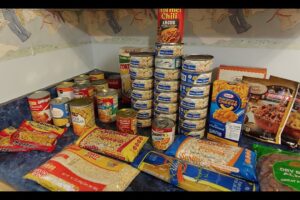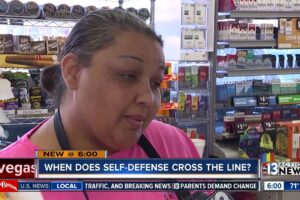
In today’s uncertain world, the concept of prepping has garnered both admiration and skepticism. Are preppers truly wasting their time, or are they onto something crucial for survival? This article aims to delve into the reasons behind prepping, debunk common misconceptions, and highlight the value that prepping can bring in times of crisis.
Preppers, also known as survivalists, are individuals or groups who actively prepare for emergencies such as natural disasters, economic collapse, or social unrest. While some may view prepping as an extreme or unnecessary measure, it is essential to understand the motivations driving this behavior.
One primary argument against prepping is the perception that it is based on fear and paranoia. Critics often dismiss preppers as overreacting to unlikely scenarios and wasting time and resources on preparing for doomsday scenarios that may never occur. However, the reality is that emergencies and disasters can strike at any moment, leaving those unprepared vulnerable and helpless.
Prepping is not solely about anticipating a catastrophic event but rather about being self-reliant and prepared for various disruptions in daily life. From stockpiling food and water supplies to learning essential survival skills, preppers equip themselves with the knowledge and resources necessary to weather unexpected challenges.
Moreover, prepping fosters a sense of empowerment and security in individuals who take proactive steps to protect themselves and their loved ones. By investing time and effort into preparedness, preppers gain peace of mind knowing that they have taken measures to mitigate risks and uncertainties.
Another misconception surrounding prepping is the idea that it is a solitary and selfish pursuit. Some may believe that preppers prioritize their own survival at the expense of others or isolate themselves from community support. However, many preppers emphasize the importance of building strong networks and collaborating with like-minded individuals to enhance collective resilience.
In times of crisis, communities with a culture of preparedness are better equipped to respond effectively and support one another. Preppers often engage in mutual aid initiatives, sharing resources, skills, and knowledge to strengthen community resilience and foster cooperation during challenging times.
Furthermore, prepping goes beyond physical preparations; it encompasses mental fortitude and adaptability in the face of adversity. By cultivating a mindset of readiness and resourcefulness, preppers develop critical thinking skills and problem-solving abilities that serve them well in emergencies.
The COVID-19 pandemic highlighted the importance of preparedness as individuals worldwide faced shortages of essential supplies and disruptions to daily life. Preppers who had already stocked up on necessities and established contingency plans were better positioned to navigate the challenges brought about by the crisis.
While critics may argue that prepping is an extreme or unnecessary practice, it is essential to recognize that preparedness is a fundamental aspect of resilience. Whether facing natural disasters, economic downturns, or other emergencies, having a plan in place can make a significant difference in one’s ability to cope with unforeseen circumstances.
In conclusion, prepping is not about succumbing to fear or paranoia but rather about taking practical steps to safeguard oneself and others in times of uncertainty. By debunking myths surrounding prepping and highlighting its value in promoting self-reliance, community resilience, and mental preparedness, we can appreciate the importance of being proactive in preparing for the unknown. Preppers are not wasting their time; they are investing in their future security and well-being.



















